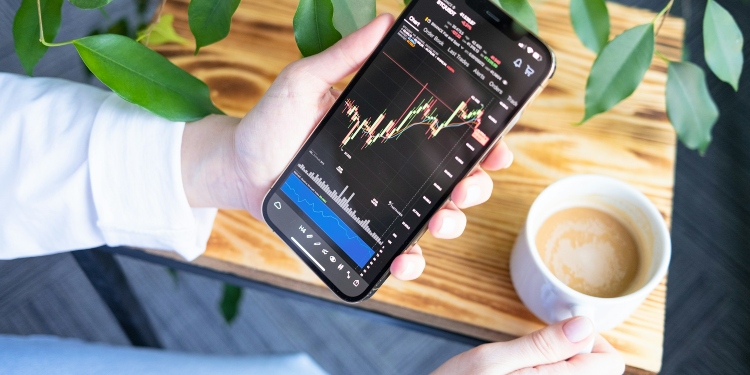The digital investment arena comprising cryptocurrency and NFTs together with traditional market assets recorded exceptional expansion during the recent years. Digital investment delivers numerous potential profits but investors must recognize its existing threats. Though safeguarding your physical wallet is second nature, protecting your digital assets should be treated with the same meticulous care, wouldn’t you agree? Ever wondered how seasoned investors navigate risks while staying informed? For better insight you can Visit https://biffy.ai/.
Why Protecting Your Digital Assets Matters?
Imagine owning a chain of gold bars you can’t physically guard. With digital investments, the scenario isn’t far off. Mistakes or cybersecurity lapses can result in permanent losses. From phishing attacks to insecure user habits, losing funds in the digital space happens faster than you’d expect. Did you know a staggering $14 billion worth of cryptocurrency was stolen in 2021 alone?
Your investments deserve more than luck. Becoming aware of threats and proactively safeguarding your digital portfolio isn’t an option—it’s a necessity.
Techy Threats That Investors Shouldn’t Ignore
Before jumping into protection strategies, it’s worth identifying specific risks in the digital landscape:
- Phishing Scams: Fraudsters constantly try to impersonate trusted apps, emails, or websites. Ever clicked on a link that looked just like your bank’s website, but something was slightly off? That’s how they get you.
- Unsecured Devices: Laptops, phones, or tablets should always be protected from malware and spyware. Digital thieves love insecure devices because they hold personal keys, passwords, and access credentials.
- Human Error: Failing to double-check an account address or reusing weak passwords across platforms is an underrated but common mistake.
By understanding the specifics of these threats, you’ll already be one step ahead of 90% of other investors.
Six Strategies to Secure Your Digital Assets
Protecting your investments is simpler than you think if you create consistent, defensive habits. Below are six essential strategies:
1. Use a Reliable Wallet
A digital wallet serves as your vault. But all wallets are not created equal. Opt for hardware wallets (also called cold storage) like Ledger or Trezor, as they aren’t connected to the internet. This keeps hackers at bay. On the other hand, hot wallets—those linked online—are more convenient but carry additional risks.
Tip: Never share your private keys or recovery phrases. It’s your wallet’s master key! Lose it, and you may lose everything.
2. Enable Two-Factor Authentication (2FA)
Be honest—how many accounts of yours rely only on a password? Without 2FA, a hacker only needs one piece of the puzzle. That’s not peace of mind, is it? Enabling 2FA adds an extra layer of protection by requiring another step, like entering a code sent to your phone or email before you can access accounts. Authenticator apps like Google Authenticator are solid companions for this purpose.
3. Create Strong and Unique Passwords
Short passwords may save time, but they also create a backdoor for cybercriminals. You need long, complex passwords infused with upper and lowercase letters, numbers, and symbols. A password manager can securely store this information for you.
Fun Fact 📣 Did you know a strong password reduces your chance of being hacked by over 90%? Don’t overlook this step!
4. Avoid Public Wifi Connections
Yes, that coffee shop’s free WiFi is tempting, but using the public internet leaves your data exposed to anyone snooping on the network. Always use private connections or a Virtual Private Network (VPN) to encrypt your activity if you absolutely need to go online.
Remember, even five-star cafes can be a pit stop for cyber thieves. Don’t hand your credentials over alongside your cappuccino!
5. Stay on the Lookout for Scams
Have you heard of “rug pulls” in cryptocurrency? It’s when creators abandon a project and run off with investor money. Always verify platforms before investing, check reviews, and ensure that companies uphold transparency. Fraudulent schemes are too common in this decentralized finance age.
Pro Tip: Never trust anything that promises “guaranteed returns.” If it sounds too good to be true, it likely is.
6. Diversify Your Portfolio Across Platforms
Never keep all your eggs in one basket—no matter how secure it seems. Store different investments (cryptocurrency, stocks, or other assets) in multiple wallets, exchanges, or platforms. Diversification minimizes risk—that way, if one platform is compromised, your losses will be limited.
What Are Your Other Options? Keep Up to Date and Seek Expert Advice
One thing is sure about digital security: technology advances more quickly than your daily cup of coffee. Five years from now, cyberattacks will probably be quite different from what they were five years ago. How can investors stay up to date?
- Learn about the most recent developments in cybersecurity. Save trustworthy sites and forums that address data security trends to your bookmarks.
- Never be afraid to seek advice from cybersecurity and finance professionals. An additional pair of knowledgeable eyes may sometimes identify dangers that you might miss on your own.
A last bit of guidance? Have faith, but double-check. Look into it first, whether it’s a broker giving you trading advice or a new exchange platform. Take it one step at a time; protecting your digital assets is a marathon, not a sprint.
Your Investments Need a Robust Defense
When you’ve worked hard to grow wealth, leaving it vulnerable isn’t an option. Consider asset protection to be similar to donning a helmet while cycling. Although accidents are unplanned, you should always be ready for them.
By using these strategies, you’re protecting your money and giving yourself the confidence to make investments. Check your digital wallets, get a cup of coffee, and give your financial security the attention it needs. Your future self will be appreciative.
David Prior
David Prior is the editor of Today News, responsible for the overall editorial strategy. He is an NCTJ-qualified journalist with over 20 years’ experience, and is also editor of the award-winning hyperlocal news title Altrincham Today. His LinkedIn profile is here.













































































